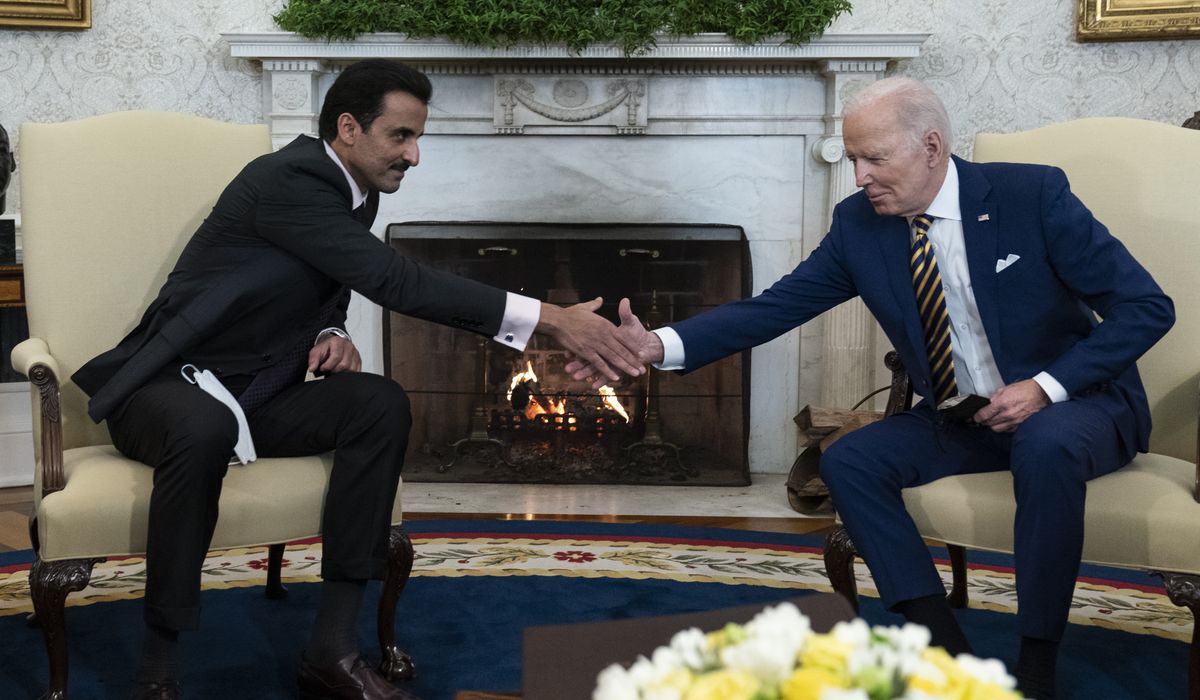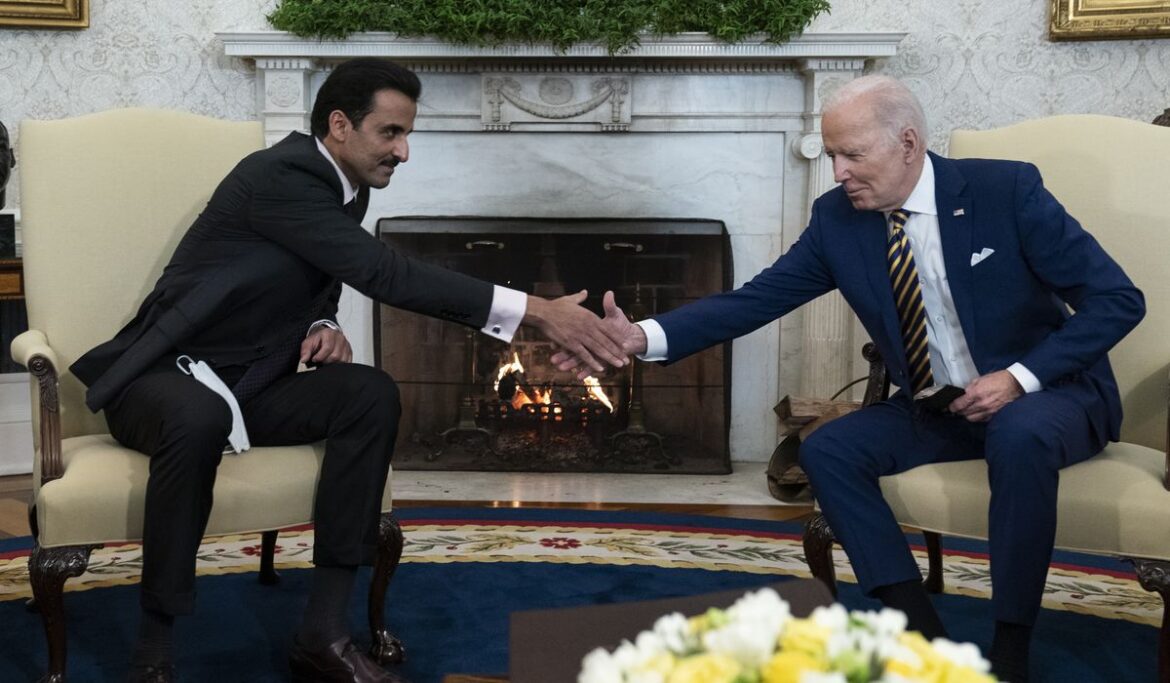
President Biden met Monday with Qatar’s emir, Sheikh Tamim bin Hamad al Thani, at the White House as fears intensify that Russian aggression toward Ukraine could spark an energy crisis.
Mr. Biden is expected to talk with the emir about how the oil-rich Qatar can help alleviate fears that a war in Europe could damage its natural gas infrastructure or Russia could cut off the continent’s gas supply.
Ahead of the meeting, Mr. Biden said he would discuss “global energy supplies” with his counterpart, but offered few specifics. Instead, he focused on how the partnership between the U.S. and Qatar has endured for 50 years.
Qatar played a critical role in last summer’s U.S. evacuation of Americans and others from Afghanistan amid the bungled military withdrawal. It hosts the largest American air base in the Middle East and worked as a go-between with the Taliban and the U.S. for the last three presidential administrations.
“This past year our partnership with Qatar has been central to many of our most vital interests: relocating tens of thousands of Afghans, maintaining stability in Gaza and providing life-saving assistance to the Palestinians, keeping pressure on ISIS and deterring threats across the Middle East,” Mr. Biden said.
The president also said he would ask Congress to designate Qatar as a major non-NATO ally, adding, “I think it’s long overdue.”
Mr. Biden will likely seize on that long relationship to urge Qatar to step up and assist the West if a Russian invasion of Ukraine sparks an energy crisis.
Qatar is the world’s second-largest producer of liquified natural gas, which could help ease the burden if there is an energy shortage in Europe.
However, it is unclear how much Qatar could alleviate a potential energy crisis. The country is producing at full capacity with most of its supply under contract to Asia. Even if U.S. allies in the Pacific agree to divert some of the gas to Europe, it might only have a moderate impact, according to energy analysts.
Fears of a fuel shortage if Russia attacks Ukraine have rattled both sides of the Atlantic.
Russia, whose energy companies supply roughly a third of the natural gas used by Europe, could weaponize its natural gas deliveries if the West imposes harsh sanctions on Moscow.
Energy prices have reached record highs around the globe, and Russia’s Gazprom, the giant state-run energy corporation, is producing less than its normal supply targeted for Germany and other Western European markets.
Russian exports of main-grade crude oil will drop to their lowest levels in February, predicts the International Monetary Fund. The world’s second-largest oil exporter will ship 1.31 million barrels a day of its crude next month, the smallest flow since September. Much of that crude is shipped to refineries in northwestern Europe.
A senior administration official told reporters last week that the U.S. and EU have engaged in “contingency planning” if a war damages infrastructure or prompts a Russian supply cutoff.
“We’ve analyzed the impacts of potential disruptions, and we’re going to work to ensure Europe has alternative energy supplies,” the official said on a conference call with reporters.
The official said the U.S. is exploring contingency options to redirect and increase gas supplies from different parts of the world, but declined to name specific countries and companies with which the U.S. has engaged, citing the “sensitivity” of the talks.
• This story is based in part on wire service reports.





